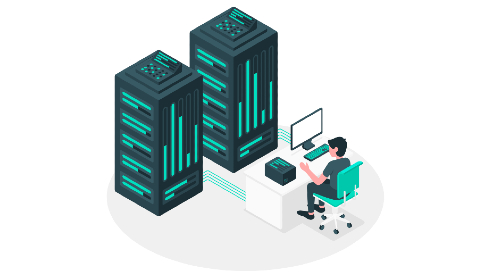DevOps For WordPress Development – A Comprehensive Guide
WordPress is an adaptable platform that makes creating different kinds of websites easier. On the other hand, DevOps incorporates a variety of astute tactics and useful tools that expedite and streamline the creation and maintenance of your website. We’ll look at how DevOps implementation may increase the efficiency of your WordPress projects in this article.
Fundamentals of DevOps and WordPress
DevOps bridges the gap between developers, who build the digital products, and operations teams, who maintain them. This teamwork facilitates smoother workflows and better results. WordPress makes picking themes and plugins simple. When combined with DevOps, you can develop, check, and update your site more effectively.
Developing a DevOps Workflow for WordPress
Getting Ready & Keeping Track Of Your Code
First off, you need to get your coding space ready. This space is where you’ll do all your work, and it needs to be a mirror of your live website to catch any issues early on. You’d also want to keep track of who wrote what and when, right? Source code management works similarly, and Git is like your change tracker. It helps you see who made what changes, when, and why, which is crucial for teamwork and keeping your project history clear.
Making Sure Your Code Works
You wouldn’t want to serve a cake without tasting it first. Using tools like PHPUnit to test your code can be considered a taste test.
Putting Your Website Out There
When it’s time to show your website to the world, you’ve got to be careful not to mess things up. That’s what deployment tools are for. They help you move your site to the web smoothly, just like you’d carefully carry out your cake for the party.
Key Tools for WordPress DevOps
Version Control and Collaboration Tools
Explore Git’s pivotal role in tracking WordPress changes, branching, and merging, and highlight how GitHub and similar platforms enhance teamwork through code sharing, review processes, and seamless integration.
Continuous Integration and Deployment (CI/CD) Services
For WordPress, this could involve setting up automated pipelines using Jenkins, Travis CI, CircleCI, or GitHub Actions. These tools help ensure that updates to WordPress themes, plugins, and core are smoothly transitioned from development to staging and production environments with minimal downtime.
Monitoring and Performance Optimization Tools
This puts focus on the importance of monitoring and optimizing WordPress site performance. It highlights tools like Nagios or New Relic for monitoring site health and uptime and plugins or tools for performance optimization like WP Rocket, W3 Total Cache, or the use of Content Delivery Networks (CDNs) to enhance website speed and reliability.
WordPress DevOps Best Practices
Effective Code Management
Keeping your code organized is like making sure your desk is tidy—it makes working together and finding what you need a whole lot easier.
Have Strong Security Measures
Prioritize security by regularly updating WordPress core, themes, and plugins. Use tools for code vulnerability checks and ensure compliance with relevant data protection regulations by enforcing strict access controls and data encryption both at rest and in transit.
Build a CI/CD Pipeline
Setting up a CI/CD pipeline is like having a checklist for your car before you hit the road. It automatically takes each website update through a series of checks. If everything’s good, it goes live, ensuring your site is always running at its best.
Scaling WordPress with DevOps Methods
It’s important to anticipate growth and ensure the website can accommodate it without performance dips. DevOps provides tools, like cloud services, that help your website grow without slowing down. It’s like having a bus that can stretch to fit more passengers as they hop on board. For professional setup and optimization, considering a DevOps consulting service can ensure your WordPress site is built on a strong foundation, ready to scale and succeed. To keep up with such scalability and optimization needs, it’s crucial to hire DevOps engineers who can implement and manage these advanced cloud solutions effectively.



Leave a Reply